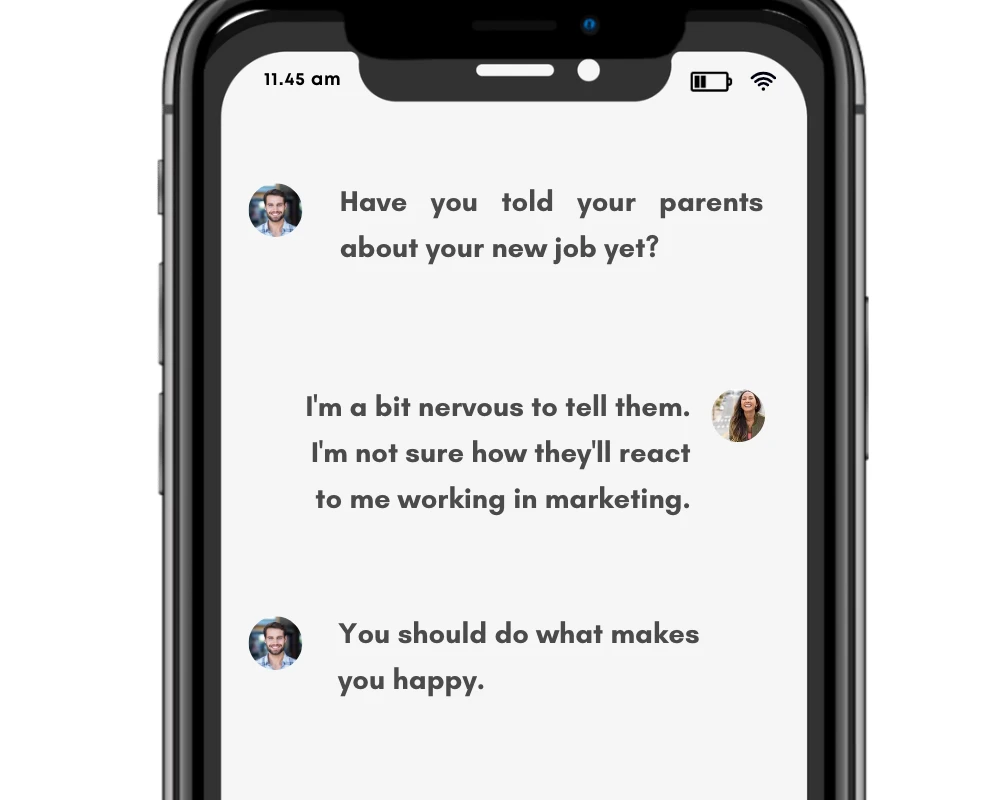
What's the past tense of "tell"?
The simple past tense of tell is told, and the past participle is also told. Use told for both simple past and past participle forms.
Definition of tell
The Oxford Learner's Dictionary defines tell as "to give information to somebody by speaking or writing."
- The past tense of tell is told.
- The past participle of tell is told.
Verb forms of 'tell'
Is "tell" a regular or irregular verb?
The verb tell is irregular. Its past tense and present or past perfect), it is part of a cohort of irregular verbs that share the same past tense and past participle form.
When to use "told" (past) vs. "told" (participle)
He told the news to everybody he saw.
I have told them all the answers numerous times.
The verb tell uses the same form for both simple past tense and present or past perfect), it requires an auxiliary verb like have, has, or had. The simple past doesn't use a helper verb since it's a complete tense, so told can stand alone in sentences, whereas participles require an auxiliary verb.
Similar irregular verbs
Sentence examples: tell, told, told
• Did she tell you her name?
• I tell my friends about my evening every day.
• She tells her son a story before she goes to bed.
• He told everybody he saw the news.
• She told me where she lives.
• We told our friends about the party before it started.
• He has told her parents about the decision.
• I have told them all the answers numerous times.
• The story has been told for generations.
Synonyms & nearby words
Synonyms for tell
Nearby phrases
Idioms with "tell"
Hear tell of something
Does Macy's tell Gimble's?
To tell chalk from cheese
Live to tell the tale
Tell it to the Marines!
Origin of the verb tell
Old English tellan “to reckon, calculate, number, compute; consider, think, esteem, account”, from Proto-Germanic taljan* “to mention in order”.
Practice: Forms of “Tell”
He ______ me a very funny story yesterday.
She has ______ him the good news already.
Could you please ______ me where the library is?
The storyteller always ______ the most exciting tales.
I was ______ to wait by the front door.
FAQs
What is the past tense of "tell"?
Is "tell" a regular verb?
What's the past participle of "tell"?
How is "told" used as a participle?
How many forms does the verb "tell" have?
Sources
-
Harper, Douglas. "Etymology of tell." Online Etymology Dictionary, https://www.etymonline.com/word/tell. Accessed 16 January, 2023.
-
"Tell." TheFreeDictionary.com. 2023. Farlex, Inc. 16 Jan. 2023 https://idioms.thefreedictionary.com/tell
Advertisement







.webp&w=3840&q=75)
